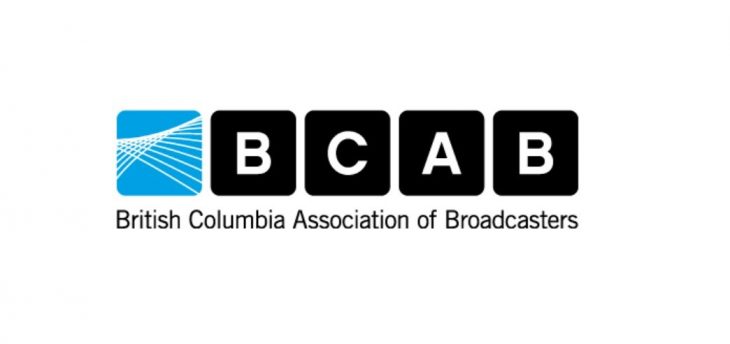
Ad spend down 60%, says broadcast association
By Ahmad Hathout
VICTORIA – A little over a month after a radio station in Kelowna went off the air due to pandemic-related advertising declines, the head of the British Columbia Association of Broadcasters (BCAB) sent a letter in May to the premier with a plea.
Pointing to relief measures introduced by the Quebec and federal governments, which include the waiving of licensing fees and consistent ad buys on local stations, Rob Bye requested a virtual meeting to discuss possible options.
“We’ve got positive verbal responses,” he said in an interview with Cartt.ca on Wednesday, adding the organization has heard back from premier John Horgan’s office. “[But] I can’t say that we have specific concrete action that’s helping us stave off the situation that we’re in – the revenue shortfalls and in some cases newsrooms shrinking and all the challenges that we’re faced with.”
According to the May letter obtained through a freedom of information request, while viewership among its member TV stations have gone up during the pandemic, advertising revenues declined by 60%.
Of course, advertising makes up the vast majority of revenue for private broadcasters in B.C.
In April, Soft 103.9 in Kelowna, B.C. filed for bankruptcy. Glacier Media was set to acquire the station, but the deal had yet to be approved by the CRTC. Separately, Cogeco laid off some 130 employees in May from its radio division due to advertising shortfalls.
While Bye, who is general manager of Pattison Broadcasting’s Vancouver Island region, said advertising has picked up since the letter was written – when many more businesses and advertising ground to a halt – “I am not suggesting that government spending or Crown spending has picked up.”
“I would say, overall, maybe a couple of furniture stores came back and are doing more advertising and so on,” he said.
Last month, the organization registered to lobby the B.C. government with details including possible tax relief measures and even “guaranteed advertising agreements.”
The letter notes BCAB’s member stations have been using their traditional and social media platforms to broadcast daily briefings on the virus situation, and pointed to a number of philanthropic and other positive initiatives these stations have made to the communities they serve.
“Without crisis assistance, beloved B.C. broadcasters will go off the air,” the letter said, with a projection, as of May 11, that a number of them would go dark in a couple of months without support.
“Think about your local private British Columbia radio or television station… versus perhaps another ad on Facebook or YouTube.” – Rob Bye, BCAB
According to the Standard Media Index, average ad revenue in the second quarter dropped 40% in Canada. Last month, the Canadian Association of Broadcasters (CAB) released a report that projected within four to six months up to 50 radio stations could close, with an additional 100-150 radio stations possibly shutting down during the next six to 18 months.
The CRTC is consulting on a request from the CAB about whether regulatory relief should be granted as part of its efforts to slow the bleeding.
The suggestion that governments should redirect some of the advertising money they spend on the digital giants like Facebook and Google toward local broadcasters isn’t new. Late last year, the Association des radios régionaux francophones (ARRF) and the Association des radios communautaires du Québec (ARCQ) lobbied the Quebec government for months to shift advertising back to their local radio stations, claiming that the bulk of advertising was going to the larger Bell and Cogeco stations.
Corus head Doug Murphy has noted the phenomenon in past conference calls, saying advertisers are shifting some of their spend back from digital to the traditional TV space because of linear’s more brand-safe environment.
The Ontario Association of Broadcasters has logged lobby registrations in June and this month about funding for the radio industry starved by the virus. Meanwhile, the Federal Government recently announced a commitment to waiving licence fees for Canadian broadcasters, which is expected to free-up some $30 million.
The BCAB pointed to the Quebec government’s $9 million monthly support fund for advertising in the Quebec media, while pledging to continue to maintain ad spend on local stations.
“Please don’t forget about us,” Bye said in the interview, acknowledging that things are different now that the province is headed for an election, too, so government priorities lie elsewhere. “If you’re going to spend money on advertising, then think about your local private British Columbia radio or television station… versus perhaps another ad on Facebook or YouTube.”
While Bye said he isn’t suggesting the government stop spending on social media, he recommended shifting a percentage of that spend toward private B.C. radio and TV.
A previous version of this story mis-named the B.C. Premier. We regret the error.



